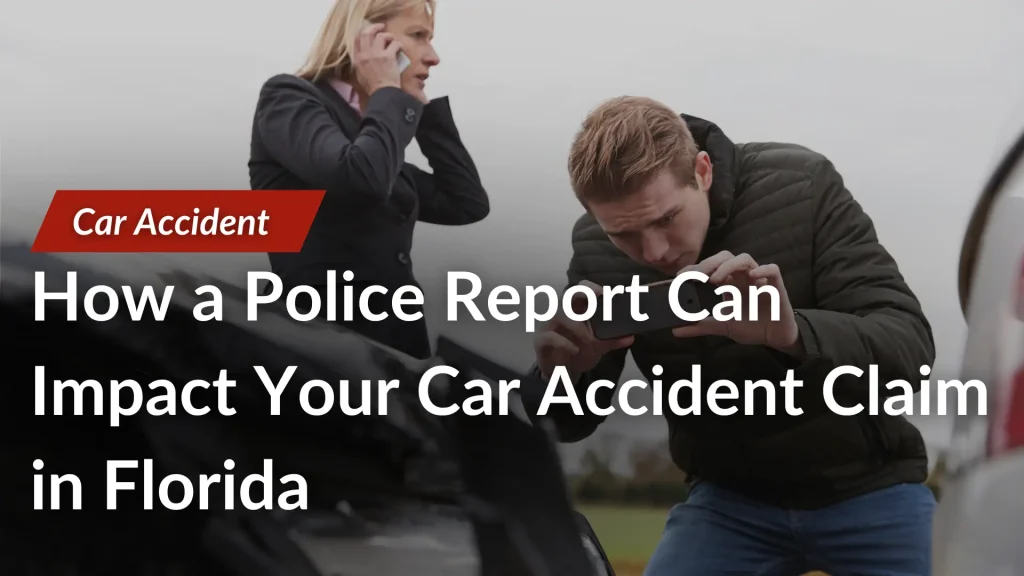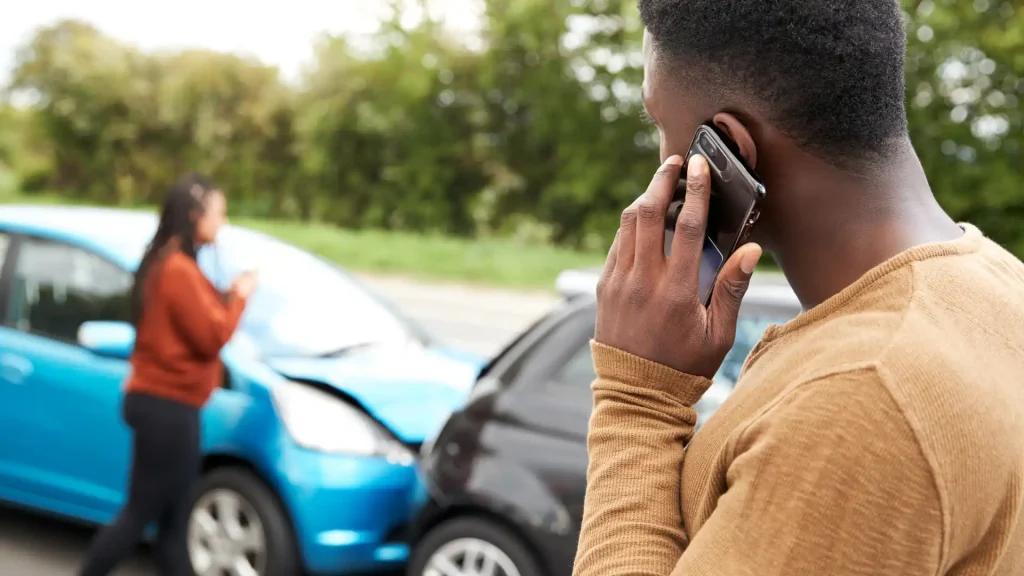 Thinking clearly after an accident can be difficult. Many victims are worried about injuries, car damage, and what comes next. One thing you might not realize right away is how much a police report matters. When it comes to your insurance or legal case, having a police report for car accident claim can make a big difference in proving what happened and protecting your rights.
Thinking clearly after an accident can be difficult. Many victims are worried about injuries, car damage, and what comes next. One thing you might not realize right away is how much a police report matters. When it comes to your insurance or legal case, having a police report for car accident claim can make a big difference in proving what happened and protecting your rights.
Whether the crash was serious or seemed minor, police documentation can help show what really happened. It’s one of the first tools insurance companies review when deciding how to handle your case, which is why understanding the benefits of a police report for your accident claim can help you protect your rights and strengthen your position.
What Is a Police Report in a Car Accident?
A police report is an official document written by a law enforcement officer who responds to the scene of a car crash. The officer gathers information and puts it all together in a single report. This becomes your official accident record. The report usually includes:
- The date, time, and exact location of the crash
- The names and contact info of drivers and passengers
- Descriptions of the cars involved
- Witness statements
- Any traffic violations or tickets issued
- The officer’s observations about how the crash happened
This kind of car crash police documentation helps show what happened and who may have been at fault.
Why a Police Report Is Important for a Car Accident Claim
Insurance companies rely heavily on police reports. That’s because they want solid proof of what happened before they pay out any money. The report often plays a big role in accident report insurance claim reviews.
Sometimes the report clearly points to one driver being responsible. Other times, it’s less clear. Either way, the report helps shape how the insurance company views the situation on settlement. If your story aligns with the traffic collision report, that can boost your claim. If it doesn’t, it may raise questions.
Some people try to handle things on their own without involving the police. That can backfire. Without a report filed at the scene of the accident, your claim might be missing key details that help prove your side.
How to Get a Copy of the Police Report in Florida
You can get a copy of the crash report in a few different ways. In Florida, you can request it:
- Online through the Florida Crash Portal
- In person at the police department that handled the crash
- By mail, depending on the agency
There may be a small fee, and reports are usually available within 10 days. You’ll usually need the report number for insurance purposes. An attorney may also assist with obtaining a copy of the police report and can help you pursue legal action.
What If the Police Report Is Inaccurate?
Police officers try to be accurate, but they don’t always get every detail right. Maybe the officer misunderstood what a witness said. Or maybe they didn’t see the damage that showed up later. If you notice a mistake in the report, don’t panic. You can request a correction, but there’s no guarantee it will be changed.
Start by contacting the department that created the report. Explain the error clearly and provide any proof you have, such as photos or a medical report. If needed, write a police statement after an accident that explains your side. Getting the record corrected may take time, especially if it involves a police investigation into the crash. However, it’s worth trying, especially if the mistake affects your claim.
When Florida Law requires a Police Report
Not every crash legally requires a police report, but many do. Under Florida law, you must report an accident if:
- Someone was hurt or killed
- There’s over $500 in damage
- A driver appears to be under the influence
- A vehicle needed to be towed
If you don’t call the police in those situations, you could face legal trouble. That’s why it’s usually a good idea to report a crash, even if it seems minor at first. Skipping the report could cause issues with your insurance company’s report requirements later.
Can You Still File a Claim Without a Police Report?
Yes, you can still file a claim, but it’s harder without a report. Some people are involved in low-speed crashes on private property, like a parking lot. In those cases, the police might not come out. That’s when you need to rely on other supporting documents for the claim.
Use photos of the cars and scene, gather contact information from witnesses, and get medical treatment if you’re hurt. These can all serve as car accident evidence if a minor accident, no-report situation arises.
Still, you may run into problems. Without a police report, the insurance company could delay your claim or try to pay less. Having a clear car crash documentation process from the start makes it harder for them to question your story.
How Police Reports Are Used in Court (If Your Case Goes to Trial)
 Most claims settle before they reach a courtroom, but some don’t. If your case goes to trial, the police report cannot be used as evidence itself, but may be used to help the officer refresh their recollection of the event.
Most claims settle before they reach a courtroom, but some don’t. If your case goes to trial, the police report cannot be used as evidence itself, but may be used to help the officer refresh their recollection of the event.
However, it is essential to keep in mind that the report isn’t evidence. Other evidence your lawyer can use to prove your case in court includes witness testimony, photos, or medical records.
Contact a Car Accident Attorney in Florida Today
Having a police report can play a huge part in the outcome of your claim. It shows what happened, helps prove fault, and can support your story when dealing with insurance companies or in court. However, if the report is wrong or you’re unsure how it affects your case, it’s helpful to speak with someone who understands how these claims work in Florida.
At Jurewitz Law Group Injury & Accident Lawyers, our Florida car accident attorney works hard to help people understand their rights and what their police report means for their case. Our team is here to help you understand your rights and take the first step toward securing the necessary benefits. If you’re unsure what to do after a crash, call us at (619) 233-5020 to get started with a consultation so that we can talk through your situation and take the next step toward recovery.
Related Post
When Is a Pedestrian at Fault for a Car Accident in Florida?


